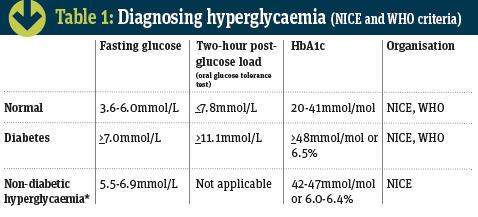
Up to 12.3 million people in the UK are at risk of developing type 2 diabetes. As mentioned, about 5 million people in England have high blood sugar (prediabetes or non-diabetic hyperglycaemia) that places them at high risk of developing type 2 diabetes. Each year, around 5-10 per cent of people with prediabetes develop type 2 diabetes.
In England, 3.8 million people have type 2 diabetes, predicted to rise to 4.9 million by 2035. It is thought that 60 per cent of type 2 diabetes cases could be prevented or delayed.
Key Stats
- It is thought that 60 per cent of type 2 diabetes cases could be prevented or delayed
- Almost 10 per cent of the annual NHS budget is spent on treating diabetes.
Premature mortality
Diabetes is a leading cause of premature mortality with over 22,000 additional deaths each year in England. The projected growth in the incidence of type 2 diabetes is a threat to the sustainability of the NHS and the wider national economy because of the associated direct and indirect (e.g. loss of productivity) costs.
Diabetes is a leading contributor to deaths from cardiovascular disease, with 50 per cent of those with diabetes dying from cardiovascular disease. People with prediabetes are also at an increased risk of developing cardiovascular conditions.
The financial burden on the NHS is immense. Diabetes care accounts for at least 5 per cent of UK healthcare expenditure. Almost 10 per cent of the annual NHS budget (just under £10bn) is spent on treating diabetes. The bulk of this (around £8.8bn) is on managing preventable complications associated with diabetes, such as premature death and disability.
Patients with diabetes have double the risk of heart attack and stroke. Diabetes also increases the risk of kidney disease, blindness and amputations. Depression is more prevalent among people with type 2 diabetes compared to the population without diabetes.

* WHO has a different set of criteria for impaired fasting glucose and impaired glucose tolerance, and does not currently recommend HbA1c for diagnosing anything other than type 2 diabetes.
